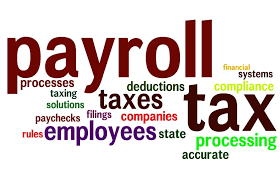Description
Organizations have legal and moral responsibilities to support diversity in their workplaces and to ensure compliance with all equal employment opportunity rules and regulations. Unfortunately, workplaces have not always been welcoming to women and minorities, and many people have faced prejudicial behavior when seeking employment or while on the job.
While laws like the Civil Rights Act of 1964 have improved the working lives of many, there are still serious issues that require attention and action. Human Resource professionals are especially important for creating hospitable and inclusive work environments.
Policies that discriminate against protected classes of individuals, either explicitly or accidentally, are illegal. Thus, even
unintentionally discriminatory practices that disparately impact those that are vulnerable to prejudicial treatment must be prevented.
Investigating an employee’s claim of discrimination or harassment requires immediate action on the part of employers to satisfy the recommendations of the Equal Employment Opportunity Commission (EEOC). The EEOC strongly recommends that employers swiftly investigate and resolve employees’ complaints of workplace harassment and discrimination. If an employee lodges a complaint against a colleague or the employer itself, an investigation is a required step since courts have ruled that failure to investigate on the part of an employer is akin to discrimination.
Responsiveness to a complaint and an investigation will not only yield the best information and evidence, but it will also enhance both the investigator’s and employer’s credibility. Investigations can help the organization identify and resolve internal problems before they become widespread. Given that every complaint has the potential to become a lawsuit, employers should investigate every case in a manner in which it can be presented to a court of law, if necessary. As potentially disruptive as investigations can be, they must be prompt, thorough and effective to ensure all parties’ protection.
On March 3, 2022, President Biden signed into law the “Ending Forced Arbitration of Sexual Assault and Sexual Harassment Act of 2021” (the “Act”). The Act amends the Federal Arbitration Act (“FAA”) to provide that predispute arbitration agreements and predispute joint-action waivers relating to sexual assault and sexual harassment disputes are unenforceable at the election of the person or class representative alleging the conduct. The Act took effect immediately upon signing. We will also cover this important update.
Session Highlights:
- Functions of the EEOC
- Federal legislation requiring equal treatment of employees
- Title VII of the Civil Rights Act of 1964: Original protected classes and currently-acknowledged protected classes; Amendments to Title VII in 1991 and 2020
- Disparate treatment v. disparate impact
- Various forms of harassment & applicable court cases
- How is sexual harassment defined?
- What harassment is NOT
- Quid-Pro-Quo harassment and Hostile Work Environments
- Best Practices for avoiding claims of sexual harassment
- Determining is the harassment is severe or pervasive
- Sexual harassment red flags
- Process of filing a charge with the EEOC
- Common reasons employees state for not filing a claim
- Charges of retaliation and discrimination
- Formal complaints and the investigative process
- Process for employees to follow when filing a charge of discrimination with the EEOC and State/Local Agencies
- What employers can expect once a charge is filed
- Conciliation process
- New legislation released March 3rd 2022 regarding forced arbitration: Ending Forced Arbitration of Sexual Assault and Sexual Harassment Act of 2021
- Mediation process
- EEOC determinations
- Front Pay in lieu of job reinstatement
- EEOC penalties levied against employers
- Tips when dealing with the EEOC
- Affirmative Action programs
- The cost of non-compliance
Who will benefit from attending this webinar?
- Senior Leadership
- Managers & Supervisors
- Project Team Leaders
- Human Resources Professionals
- Operations Professionals
- Recruiting Professionals
- Employees


 Diane L. Dee
Diane L. Dee This webinar has been approved for 2.0 HR (General) recertification credit hours toward aPHR™, PHR®, PHRca®,SPHR®, GPHR®, PHRi™ and SPHRi™ recertification through HR Certification Institute® (HRCI®).
This webinar has been approved for 2.0 HR (General) recertification credit hours toward aPHR™, PHR®, PHRca®,SPHR®, GPHR®, PHRi™ and SPHRi™ recertification through HR Certification Institute® (HRCI®).


